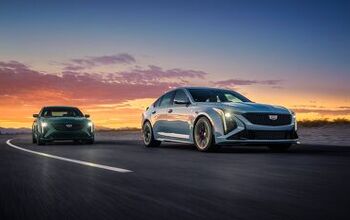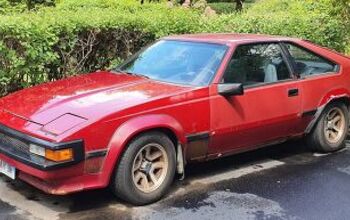Millennials Really Do Intend to Buy Cars. Thank the Pandemic.
Forget all you’ve heard about Millennials (24-39 years old) and their disdain for automobiles. COVID-19 has changed that, as 31 percent of those without a car intend to buy one in the next six months, and 45 percent of them are Millennials.
EY, a global leader in assurance, tax, strategy, and consulting services, and a member of Ernst & Young Global Limited, issued their 2020 EY Mobility Consumer Index, surveying over 3,300 consumers across nine countries. Thirty-one percent of the respondents who don’t own a car plan to buy one in the next six months, while 20 percent that already own a car say they would be open to buying another vehicle. Both groups said that one of their principal reasons to purchase is the pandemic.
Seventy-eight percent said that they would be more likely to use their cars for post-pandemic travel, with Millennials comprising more than half that number at 52 percent.
Despite their vocal support of the Green New Deal and its “Overhauling of transportation systems to eliminate pollution and greenhouse gas emissions from the transportation sector, through investment in zero-emission vehicles and manufacturing; clean, affordable, and accessible public transportation; and high-speed rail”, 71 percent who presently don’t own a car are looking for a new vehicle that is gas- or diesel-powered, with 23 percent who want a hybrid, and only 6 percent interested in a purely electric vehicle.
Public Transportation Usage Falls
Public transportation usage for work travel has declined 69 percent from pre-pandemic levels, and John Simlett, EY Global Future of Mobility Leader said, “The COVID-19 pandemic is reshaping the marketplace. Millennials leading the increase in car ownership globally would have been unthinkable a year ago, particularly in terms of buying non-electric vehicles. The industry should recognize that there is a new market out there that didn’t exist until very recently. But with more people buying cars and car usage expected to increase, this leaves policymakers with some difficult questions to answer: How to accommodate all these cars on our road? Aim for a more diverse mobility mix? How will this trend impact investment in public transportation? Is this sustainable, and if not, what needs to be done and by whom?”
In addition to the reduction in public transportation usage for work, there has been a 61 percent decline in use for leisure and entertainment pursuits and a 53 percent reduction for household and social travel.
Italian and German respondents, at 47 percent and 46 percent respectively, are more likely to buy a new car. Ninety percent of Chinese, 85 percent of Indian, and 81 percent of Germans say they will increase their car usage.
Simlett said, “The numbers in emerging markets like China and India bring optimism to automotive executives who have been concerned about the expected sales recovery in those regions. While sales in these markets have already bounced back to some extent, there is room for that trend to continue and this seems to suggest that there is healthy demand on the horizon.”
The Mobility Consumer Index (MCI) tracks the impact of COVID-19 on mobility, providing a unique insight into the shift in personal mobility and car buying behavior amidst the pandemic. Based on a global survey of more than 3,300 consumers in China, Germany, India, Italy, Singapore, South Korea, Sweden, the United Kingdom and the United States during August 2020, the MCI is indicative of changing travel patterns and preferences, centered on the rise of working from home, reduced time spent on entertainment and socializing, and increasing digital behavior. Mobility choices and the buying behaviors of a diverse set of consumer personas are among the index’s insights.
Will vaccination make any difference in mobility, returning people to public transportation, or has the coronavirus already changed car buying behavior for the foreseeable future?
[Image: Fractal Pictures/Shutterstock.com]
With a father who owned a dealership, I literally grew up in the business. After college, I worked for GM, Nissan and Mazda, writing articles for automotive enthusiast magazines as a side gig. I discovered you could make a living selling ad space at Four Wheeler magazine, before I moved on to selling TV for the National Hot Rod Association. After that, I started Roadhouse, a marketing, advertising and PR firm dedicated to the automotive, outdoor/apparel, and entertainment industries. Through the years, I continued writing, shooting, and editing. It keep things interesting.
More by Jason R. Sakurai
Latest Car Reviews
Read moreLatest Product Reviews
Read moreRecent Comments
- Probert They already have hybrids, but these won't ever be them as they are built on the modular E-GMP skateboard.
- Justin You guys still looking for that sportbak? I just saw one on the Facebook marketplace in Arizona
- 28-Cars-Later I cannot remember what happens now, but there are whiteblocks in this period which develop a "tick" like sound which indicates they are toast (maybe head gasket?). Ten or so years ago I looked at an '03 or '04 S60 (I forget why) and I brought my Volvo indy along to tell me if it was worth my time - it ticked and that's when I learned this. This XC90 is probably worth about $300 as it sits, not kidding, and it will cost you conservatively $2500 for an engine swap (all the ones I see on car-part.com have north of 130K miles starting at $1,100 and that's not including freight to a shop, shop labor, other internals to do such as timing belt while engine out etc).
- 28-Cars-Later Ford reported it lost $132,000 for each of its 10,000 electric vehicles sold in the first quarter of 2024, according to CNN. The sales were down 20 percent from the first quarter of 2023 and would “drag down earnings for the company overall.”The losses include “hundreds of millions being spent on research and development of the next generation of EVs for Ford. Those investments are years away from paying off.” [if they ever are recouped] Ford is the only major carmaker breaking out EV numbers by themselves. But other marques likely suffer similar losses. https://www.zerohedge.com/political/fords-120000-loss-vehicle-shows-california-ev-goals-are-impossible Given these facts, how did Tesla ever produce anything in volume let alone profit?
- AZFelix Let's forego all of this dilly-dallying with autonomous cars and cut right to the chase and the only real solution.

































Comments
Join the conversation
"Millennials Really Do Intend to Buy Cars" Oh no!!! They better don't! There are already too many cars and too many people on the planet.
Anyone else want to puke when seeing the photo at the top of this article. There is something just so irritating about these people. Add to that their idiotic obsession with their phones and photographing everything for their "insta" and their "feed" or whatever the hell they call their stupid social media. Huge eye roll.